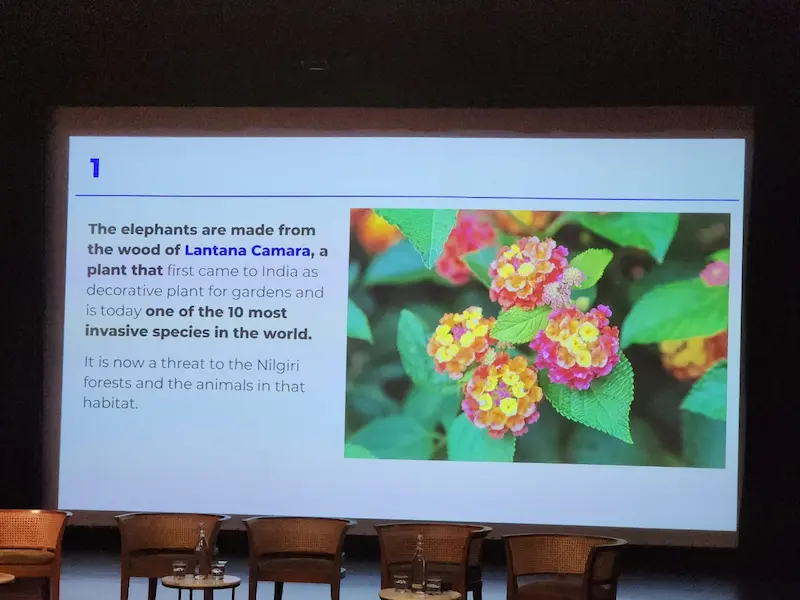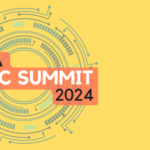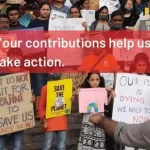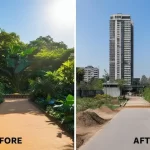
What happens when over 150 changemakers, urban experts, and active citizens come together to tackle the most pressing challenges facing Indian cities? At the India Civic Summit 2025, held on February 8 at the Bangalore International Centre, the answer was clear: bold ideas, hard truths, and a renewed sense of purpose. With the theme Citizen Action for Climate-Resilient Cities, the summit wasn’t just a gathering—it was a call to action for everyone who dreams of more sustainable, inclusive, and livable urban spaces.
From hard-hitting critiques of climate policies to practical workshops on civic tools like RTI, the event by Oorvani Foundation and Citizen Matters was a melting pot of insights, collaboration, and optimism. Here’s how the day unfolded and why it left participants inspired to take charge of their cities’ futures.
Climate Commitments: A Call for Inclusive Action
One of the standout sessions of the day was the panel discussion, Climate Commitments: Plan to Action. The panelists, including Jaya Dhindaw (WRI India), Ventri Selvan (Poovulagin Nanbargal), Rajendra Prabhakar (Maarga) and Kanchi Kohli (environmental researcher) delivered a hard-hitting critique of the current state of climate action plans in India. They highlighted that many state governments have developed climate action groups, but these are often limited to technical documents with little to no representation from marginalized communities. The lack of public consultation in these processes makes them undemocratic and disconnected from the realities on the ground. What’s even worse is that these plans lack any legal mandate and are purely suggestive, not enforceable directives.
The discussion also spotlighted Bengaluru’s own Bengaluru Climate Action and Resilience Plan (BCAP), which aims to achieve a net-zero and climate-resilient city. The BCAP prioritizes sectors such as energy and buildings, transportation, solid waste, air quality, water, wastewater, stormwater, urban planning, greening and biodiversity, and disaster management. A significant milestone in this effort was the establishment of a Climate Action Cell on February 1, 2024, led by the Special Commissioner of BBMP, with the Chief Engineer (Lakes) as the Member Secretary. This multi-stakeholder collaboration is a step forward, but the panel emphasized the need for greater inclusivity and transparency in such initiatives.
Fascinating Insights from the Quiz Session
The quiz session was a crowd favorite, offering surprising and thought-provoking facts about climate and civic issues. For instance, participants learned that the invasive plant Lantana camara, originally introduced to India as a decorative garden plant, is now one of the top 10 most invasive species globally, threatening the Nilgiri forests and its wildlife. Another highlight was the story of Jane Gilbert, who became the world’s first Chief Heat Officer (CHO) in Miami in 2021, a role dedicated to addressing urban heat challenges. The session also touched on the Great Pacific Garbage Patch, a stark reminder of the global plastic crisis.

Jayaram Venkatesan’s Masterclass on RTI and Tenders
Jayaram Venkatesan’s session on using the Right to Information (RTI) Act effectively was both practical and empowering. He shared strategies for filing RTI applications that yield actionable responses, emphasizing the importance of specificity in framing questions. For example, instead of asking vague questions, applicants should request detailed records, such as the number of acres of a lake under civic control or copies of tender documents and agreements related to public works.
Jayaram also shared his personal experiences, including the challenges of filing RTIs on sensitive issues. He explained that while individual complaints are often ignored, filing RTIs as part of an organization increases the likelihood of receiving timely responses. He also highlighted the importance of filing first appeals when initial applications are ignored, as persistence often leads to results.
For those interested in civic works, he provided a detailed template for RTI queries, covering everything from tender documents to quality reports. He also praised Karnataka’s Mahiti Kanaja website, which consolidates tender information from all government departments, and urged other states to adopt similar platforms for transparency.

A Day of Learning and Collaboration
The summit also featured interactive workshops, networking sessions, and inspiring stories of change. From understanding carbon footprints to learning how to influence governance, participants left with actionable tools and strategies to drive local change.
Civic Circles: Interaction to Action
One of the most engaging segments of the summit was Civic Circles: Interaction to Action, where participants had the opportunity to network, collaborate, and brainstorm solutions to pressing urban challenges. Facilitated by Plograja, Krishna Priya, Arathi Manay, Pooja Pawar, and Nitin Seshadri, the session allowed attendees to form small groups and dive into topics such as transportation, governance, and more.
The discussions were dynamic, with participants identifying pain points and proposing actionable solutions. A unique aspect of the session was the “hopeful index,” where attendees rated their optimism about change on a scale of 1 to 10. At the ‘governance’ roundtable moderated by civic activist Nitin Seshadri, participants gave a solid 7/10, reflecting cautious optimism about the future. The diversity of the group added depth to the conversations, with students, experienced professionals, and even participants from other states sharing their perspectives. This mix of fresh ideas and seasoned insights made the session both inspiring and practical, leaving many participants motivated to take action in their own communities.
Insights: Passion to Action
The Insights: Passion to Action segment of the summit provided attendees with a practical roadmap for driving real, sustainable change through effective messaging, actionable tactics, and innovative tools. One of the highlights was Talk the Walk by Arun Pai, a passionate advocate for pedestrian-friendly cities. Known as the self-declared “Bengaluru Footpath Mayor,” Arun has spent over 20 years leading heritage walks across Bengaluru, showcasing the city to over 50,000 people, including corporate leaders, diplomats, and local residents. His optimism and initiatives, such as the BLRWalkFest, demonstrate how citizen involvement can transform urban infrastructure.
Another engaging session, How to Win Civic Friends and Influence the State, was led by Tara Krishnaswamy and Charu Govindan. Tara, a seasoned urban and gender activist with over 25 years of experience in technology and government relations, shared insights from her work on sustainable mobility and gender-inclusive representation. Charu, a founder-member of Voice of People, brought her expertise in participatory democracy, emphasizing the importance of grassroots civic engagement.
The segment also featured a workshop titled Carbon Footprints – From an Individual’s to India’s by Vivek Gilani, an Ashoka Fellow and founder of cBalance. Vivek provided a framework for understanding how personal choices and policy decisions shape environmental outcomes. Drawing from his extensive experience in sustainability, including mitigating emissions for global events and holding elected representatives accountable through the Informed Voter Project, he empowered participants to make informed decisions and advocate for systemic change.
Cities – Citizens – Climate: Insights from Dr. Jayaprakash Narayan
Dr. Jayaprakash Narayan’s 45-minute talk, titled Cities – Citizens – Climate, was one of the most well-attended sessions of the summit, with the audience listening in pin-drop silence, captivated by his every word. A physician and former IAS officer, Dr. Narayan is the founder of the Foundation for Democratic Reforms (FDR) and Lok Satta, organizations that have been instrumental in driving governance reforms across the country. Over the years, FDR and Lok Satta have championed several key reforms and are now focused on advancing true federalism, effective and accountable local governments, rule of law, and improvements in education, healthcare, and agriculture. During his talk, he praised Bangalore as the most civic-conscious city in India, a conclusion he reached after visiting every major city in the country. While acknowledging the challenges ahead, he expressed his fervent hope that the city’s dedicated civic activists would ensure progress stays on track. Dr. Narayan also emphasized the role of technology as a key enabler in tackling climate change, citing examples like Polymethylpentene (PMP) films, such as TPX, for their potential in addressing environmental challenges. His talk was peppered with personal insights, and he humbly shared that he came to the event not to inspire others, but to be inspired by the passion and commitment of the civic community.
Moving Forward
Oorvani Foundation spotlighted the impactful work of civic groups from cities like Mumbai, Bangalore, and Chennai, showcasing how grassroots efforts are driving meaningful change. In Bangalore, organizations such as HSR Citizen Forum, Zero Waste Collective, Federation of Bangalore Lakes/Friends of Lakes, Friends of BMTC, I Change Indiranagar, and Friends of L Street were celebrated for their contributions to urban sustainability, public transport advocacy, lake conservation, and community-driven initiatives.
In Chennai, groups like IRCDUC, Poovulagin Nambargal, Voice of People, ROKA, and the Federation of Tambaram Associations were recognized for their work in environmental justice, participatory governance, and neighborhood-level civic action.
Meanwhile, Mumbai’s Chandivali Citizens’ Welfare Association, Kharghar Wetlands and Hills Group, T Ward Hill Side Association and Pani Haq Samithi were lauded for their efforts in environmental conservation, civic activism, and water rights advocacy. Oorvani also promised to expand its reach in the next annual summit by including more cities and highlighting a broader range of citizen-led efforts, ensuring the movement for better cities becomes truly nationwide.
The India Civic Summit 2025 was more than just an event—it was a rallying cry for citizens to take charge of their cities’ futures. As urban challenges grow more complex, the summit underscored the power of collaboration, transparency, and grassroots action in building climate-resilient cities.
The conversations sparked here will undoubtedly fuel ongoing efforts to make Indian cities more inclusive, sustainable, and livable for all.



